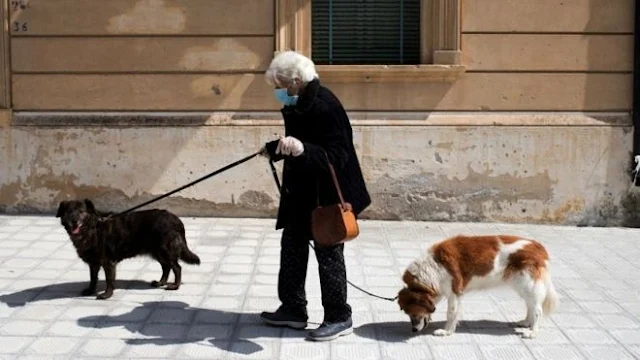EU talks on how to help southern Eurozone countries badly affected by the coronavirus epidemic have stalled after 16 hours.
 |
| Italy has been struggling with huge debt since before the coronavirus crisis |
The European Central Bank says the bloc may need up to €1.5tn ($1.6 trillion; £1.3tn) to tackle the crisis.
European finance ministers were close to a deal, but the talks broke down amid a dispute between Italy and the Netherlands over how to apply the recovery fund.
Negotiations will resume on Thursday.
The coronavirus pandemic has exposed deep divisions in Europe, where Italy and Spain have accused northern nations - led by Germany and the Netherlands - of not doing enough.
The Italian, who was head of the European Research Council for less than four months, said in his resignation statement that a special programme he tried to set up to combat the virus had been rejected out of hand.
The European Commission has not commented on the criticism, but a leading MEP, Christian Ehler, accused Mr Ferrari of conducting a "window-dressing public relations stand on the coronavirus crisis".
Why did the EU talks break down?
Italy, Spain, France and some other EU states want to share out coronavirus-incurred debt in the form of "coronabonds" (or eurobonds) - mutualised debt that all EU nations help to pay off.
An all-night teleconference between Eurozone finance ministers to discuss this started on Tuesday and went on for 16 hours, but Italy refused to back down on its demands.
The Netherlands opposes the proposal, and wants member states to have repayment conditions phased in over the years.
For now, a draft text of what has been agreed states that "innovative financial agreements" will need to be used.
The meeting's chairman, Portuguese Finance Minister Mario Centeno, said he had suspended the talks until Thursday but was still seeking a strong safety net against the effects of the virus.
The French and German finance ministers urged colleagues to continue to seek a solution. In a tweet (in German), Germany's Olaf Scholz called for EU states to stand together and find a "good compromise".
The BBC's Gavin Lee in Brussels says that essentially the issue is one of trust over whether Italy and Spain will eventually pay back what has been borrowed so that other countries are not financially exposed.
Spanish Prime Minister Pedro Sánchez has even warned that if the EU fails to come up with an ambitious plan to help member states saddled with debt by the fight against coronavirus, the bloc could "fall apart".
Some from these hard-hit nations have been angered by a perceived indifference from other EU states.
Italy's agony
Italy remains at the centre of the crisis in Europe, with the highest death toll - more than 17,000; next comes Spain, with nearly 14,000 deaths, Johns Hopkins University data shows.Even before the economic damage of this crisis, Italy's public debt was 133% of its GDP (total output), or about $2.3tn (£2tn) - the highest in the eurozone after Greece.

Germany wants to set up an EU rescue fund and lend using mechanisms established during the financial crisis of a decade ago.
This week, a group of Italian mayors and other politicians bought a page in Germany's Frankfurter Allgemeine Zeitung newspaper to remind Germany that it was never made to pay back its debts after World War Two.
Public opinion has also been shifting in Germany.
Economists, politicians and commentators who once railed against mutualising eurozone debt to bail out Greece amid the last financial crisis are calling for exactly that to help Southern Europe deal with the coronavirus.











0 Comments:
Post a Comment